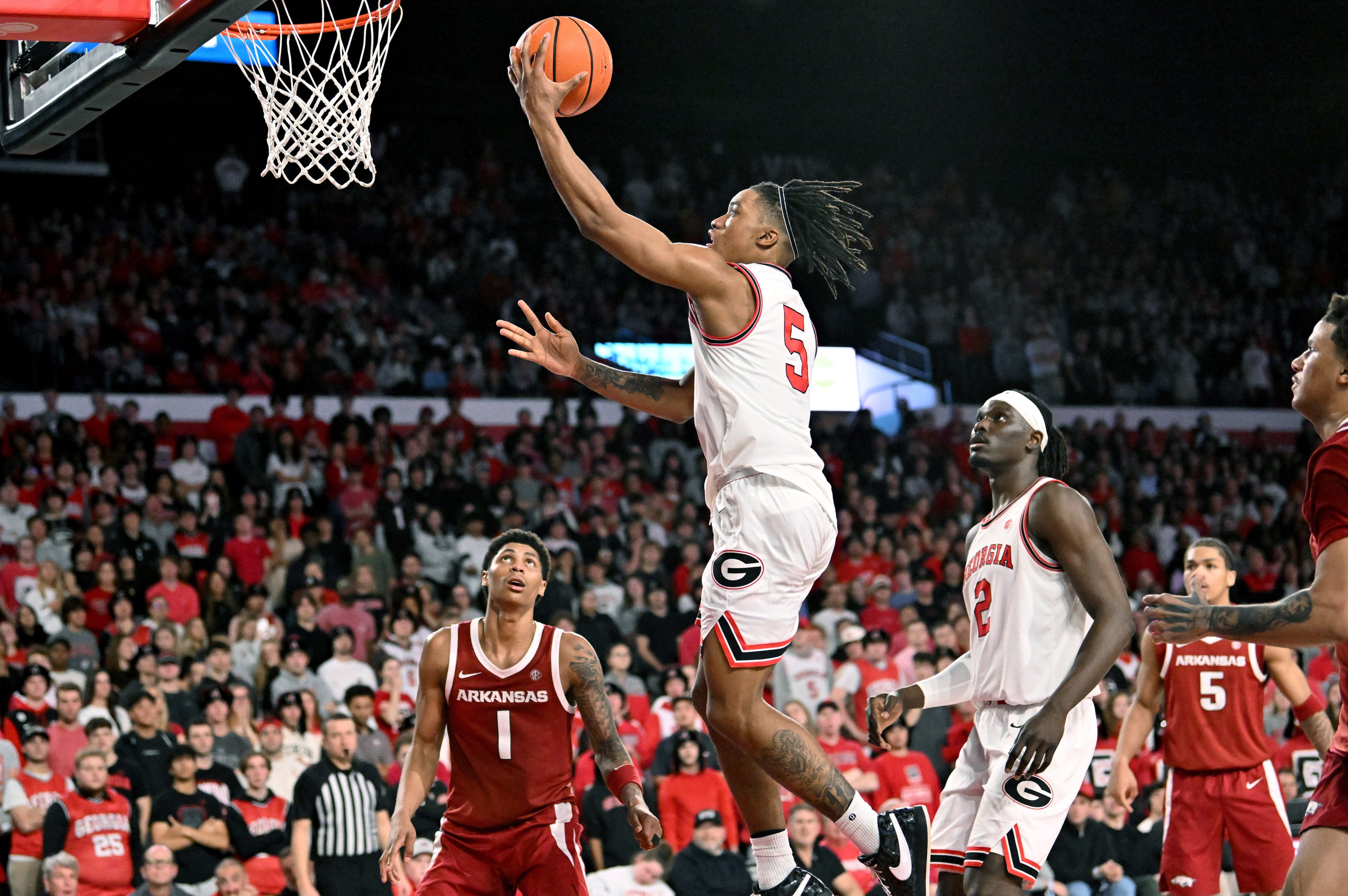Georgia, Georgia Tech want to keep their football game on schedule

The SEC is considering a conference-only schedule for football this fall, but under that plan, Georgia hopes it would be allowed to keep Georgia Tech on the docket as well.
SEC athletic directors met with Commissioner Greg Sankey for eight hours Monday in Birmingham, Ala., to discuss, among other things, scheduling options for a possibly truncated season because of the COVID-19 pandemic. The Big Ten and the Pac-12 are among Power-5 conferences that have announced they'll play only intraleague games if the season is played, a scenario that is being considered by the ACC and the Big 12.
If that happens, Georgia is among the SEC schools lobbying to keep its traditional, in-state rivalry intact this year. It’s a scenario the Yellow Jackets are on board with as well.
» MARK BRADLEY: What a spring football season looks like
“I’ve talked to (Tech athletic director) Todd (Stansbury), and he definitely wants to play it,” Georgia AD Greg McGarity said Monday night as he drove back to Athens from Birmingham. “So does FSU and Florida, Clemson and South Carolina and Kentucky and Louisville. The importance of those intrastate rival games was brought up, and you’re talking about travel within the state. So proximity was a key part of that as well.”
Georgia is scheduled to play the Jackets on Nov. 28 in Athens.
The questions, then, are if the SEC follows suit and plays conference-only games, how many games will they play, who plays whom, when would the season commence and when would it be completed?
McGarity said all those scenarios were discussed, and more. The length and depth of that discussion is the reason the SEC adjourned the meeting without resolution and resolved instead to meet at the end of the month.
“We’ll have another look-in at the end of the month and see where things stand,” McGarity said. “Probably the best way to describe it is there are a number of options, and they’re all on the table. But it will be based on what the information tells us at the end of the month.”
The numbers and logistics of dealing with the unrelenting presence of COVID-19 also was a big part of the discussion Monday. That situation has been trending poorly late in the summer, which has given added weight of the prospect of not playing football this year or altering the schedules to play a shorter season later in the year.
Georgia has not shared publicly the number of positive tests its athletes have recorded since returning to campus June 8 for voluntary workouts, but several programs have, and the information has been alarming. Ohio State and North Carolina are among the Power 5 football programs that have shut down voluntary workouts because of the continued presence of the virus in their camps.
But McGarity indicated that the information shared Monday by the SEC’s “return to competition committee,” which includes UGA sports medicine director Ron Courson, was not all bleak. He referred to Sankey’s remarks directed toward the athletes themselves adhering to all safety protocols.
Much of the discussion also was about the safety logistics that will have to be in place for games to be conducted, such as masks, headgear and essential personnel.
“They’re the voice of expertise and the over-arching message dealt with student-athlete safety and wellness,” McGarity said of the medical experts. “That’s the top priority. So, all these decisions will be based on the medical advice that we receive from this group. But it’s not all as dark as is being portrayed.”
Several scheduling scenarios have been bantered, including playing the eight conference opponents currently on the SEC teams’ schedules, adding two more league opponents, playing a shortened season in consecutive weeks or playing a shortened schedule with off weeks interspersed throughout to allow for testing and recovery in between.
Dr. Brian Hainline, the NCAA’s chief medical officer, is expected to share his recommendations for how football games could be conducted from a logistics standpoint later this week.
Meanwhile, McGarity emphasized that the SEC hasn’t closed the door completely on an on-time start for a full season of play.
“I think it’s still possible, but these next 17, 18 days are really critical,” McGarity said. “We just need some positive signs.”



